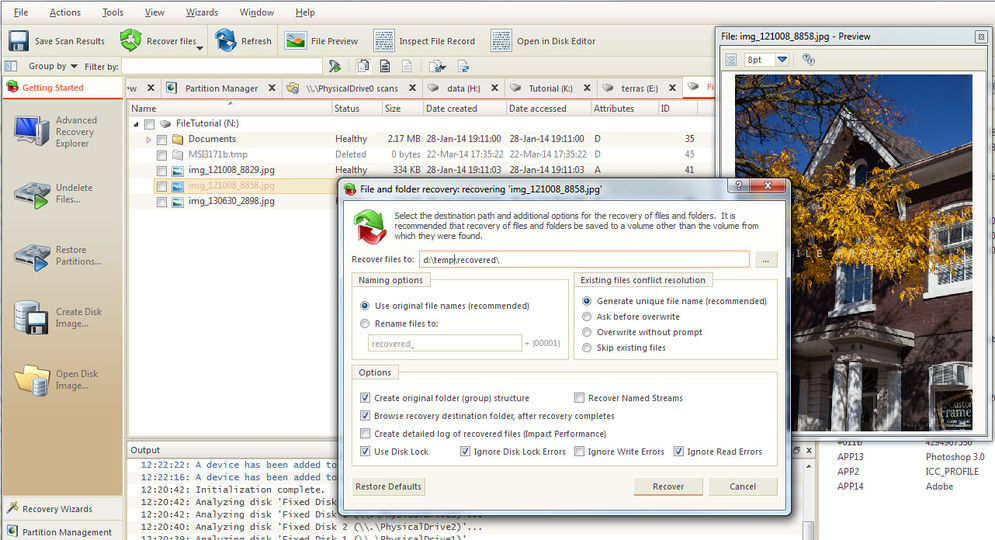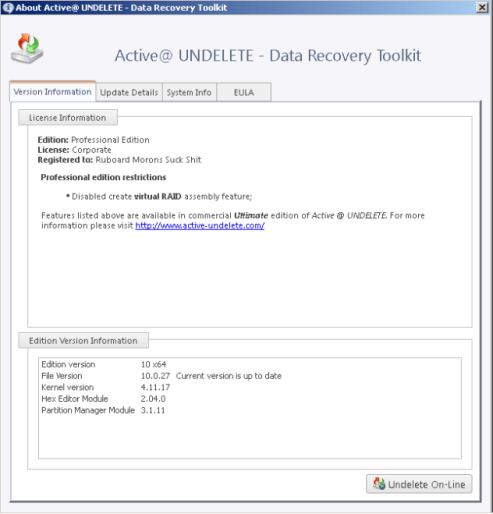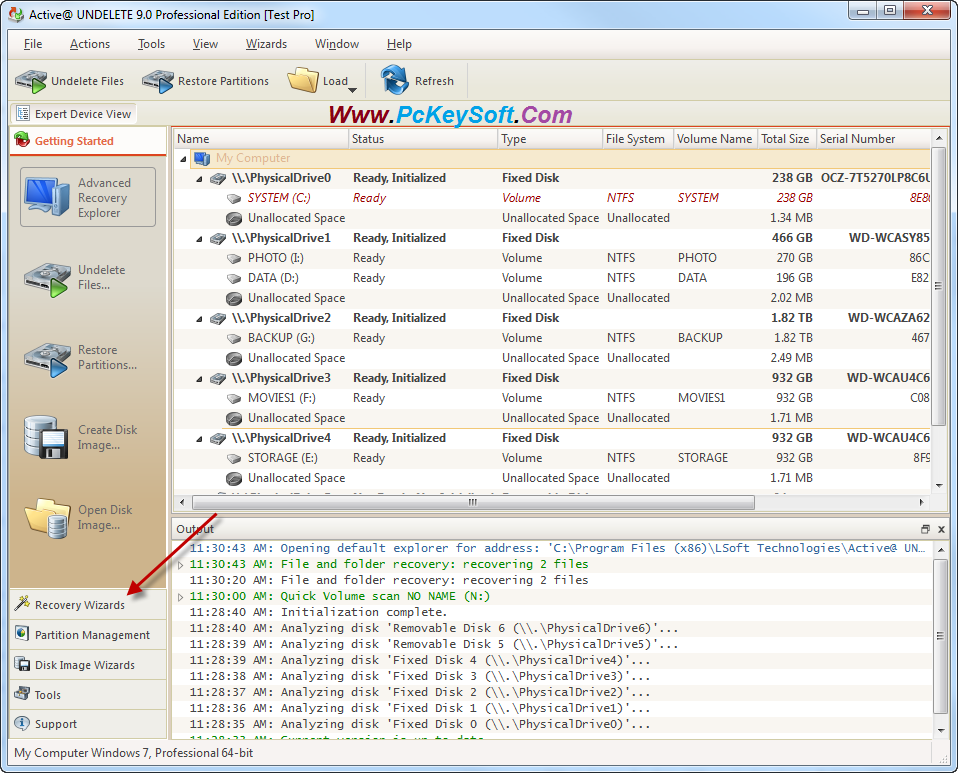

If you have only a few applications and one domain controller, you might want to fail over the entire site together.

The additional domain controller can be in Azure, or in a secondary on-premises datacenter.

Review the support requirements for all components.If you're replicating to Azure, prepare Azure resources, including a subscription, an Azure Virtual Network, a storage account, and a Recovery Services vault.You should be familiar with Active Directory and Site Recovery before you begin. It includes prerequisites, and failover instructions.
ACTIVE UNDELETE 14 REGISTRATION KEY HOW TO
This article explains how to create a disaster recovery solution for Active Directory. Then, fail over the other applications, using application-specific recovery plans. You can first fail over Active Directory using Site Recovery. If you have deployed Active Directory for multiple applications in your primary site, for example, for SharePoint and SAP, you might want to fail over the complete site. You can have Active Directory up and running in a few minutes. When a disruption occurs, you can initiate a failover. You can use Site Recovery to create a disaster recovery plan for Active Directory. When you set up disaster recovery for applications, you often need to recover Active Directory and Domain Name System (DNS) before you recover other application components, to ensure correct application functionality. Enterprise applications such as SharePoint, Dynamics AX, and SAP depend on Active Directory and a DNS infrastructure to function correctly.


 0 kommentar(er)
0 kommentar(er)
